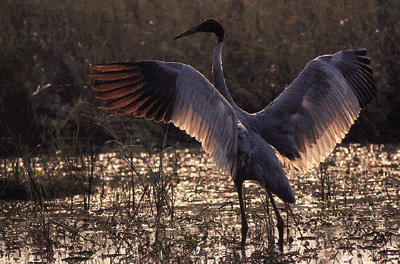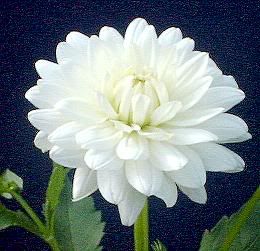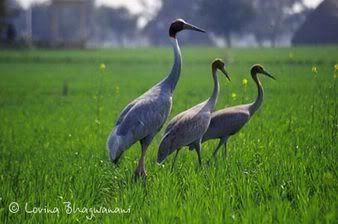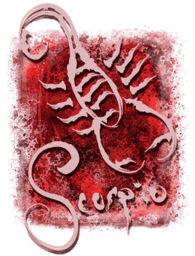
The Sojourn Of The Sarus Crane
I just wanted to take a moment here to again speak lightly of the issues of war and peace, as I have started my new school year at Portland State University this week, and already have been most inspired by one of my professors, Tom H. Hastings, who teaches the class "Ecology of War and Peace". He is also the author of a wonderful, groundbreaking publication of the same title.
Indeed I have long felt that America is still a young nation, that America has always nurtured this "baby" of innocence, and as one who is guided by faith each and every day in my life, I've long believed we are all God's children, we're all siblings in spirit. Matthew 5, 3-9 has motivated me especially, which convinces me that the sword Christ spoke of was a sword of light, a sword that heals, a peaceful sword.
***
"Blessed are the poor in spirit: for theirs is the kingdom of heaven.
Blessed are they that mourn: for they shall be comforted.
Blessed are the meek: for they shall inherit the earth.
Blessed are they which do hunger and thirst after righteousness: for they shall be filled.
Blessed are the merciful: for they shall obtain mercy.
Blessed are the pure in heart: for they shall see God.
Blessed are the peacemakers: for they shall be called the children of God."
***

I'm approximately 1/4 Native-American blood (mostly Cherokee, traces of Dakota). I have learned through my ancestors of Lakota blood and tradition that there are "four souls" that remain of universal value to their people. The number "four" has always been providential to the people (like the cardinal directions and the four eagles) and each of these souls together weave this very providence. They are Niya ("the breath of life") which is the body, health and substance,, Nagi ("ghost"), which helps connect us to the living mirror, Sicun, which is knowledge and wisdom, and Nagila ("little spirit") which is the beacon of all life and represents everything (like Wakan Tanka)
Kinship has always been what has made the Lakota tribe a unique, inspiring people, kinship through nature, family and spirituality. As one with Native American blood and pride, I am heartbroken and feel from the bottom of my heart indeed by how this kinship's resolve is being stricken on and on through these unfortunate ecological, political and social circumstances that truly do encompass us all.
In Tom's introduction, he couldn't have said it better: "We cannot prepare for war without preparing to attack the foundations of human existence" I’ve always believed you don’t have to be a physical victim of war to understand the tragedy war is. World War I was heralded before to be "the war to end all wars". We all know for a fact that couldn’t be further from the truth. In the past 55 years since World War II, nearly 200 wars have occurred worldwide. Two hundred, and the fact the world continues to war only sinews my reinforced notion that war only brings out the worst in us all and the world, only leaves more tension in its wake, more sadness, more grief.

The thesis Tom makes in Section 1 of his book is, "our economy (monetary relationships) is, in the end, utterly dependent upon the ecology (living organisms’ relationship to each other and the earth.") That in heart and mind alike ought to be a grand thesis of the merging ecological and peace movements in general. I am optimistic that there is a growing sense among the mainstream public of our own overlooked internal threats to weapon making and manufacturing, from the statewide Nevada debate on Yucca Mountain, to the popular Michigan and Wisconsin ELF and electromagnetic radiation protests he speaks of, to other missile defense programs worldwide. But indeed when the mainstream America perceives the peace movement now, their aesthetic reaction remains focused on security and the ideals of freedom, along with much of the recent peace movement (and understandably in my heart) being deeply rooted in criticism of our government at large. The ecological element hasn’t framed the movement yet, and though I am optimistic progress is being made, we need to customize this ecological framework around the peace movement, which I believe will inevitably make the message of the peace movement far more credible and invoke the consciousness of mainstream America.

The peace movement must also adopt another point Tom Hastings touches on as a central point: "The truth is that the Earth is simply regarded as a tool to be used for one army’s advantage over another." It may sound like a radical notion to many when you say this point alone, but I believe if we can braid this thesis with the understanding that our economy is dependent upon our ecology, and not the other way around, it can be a most persuasive case and immediately sound like quite a moderate claim, and, with this argument, though we cannot measure all the ecological damage of war since the beginning of time, this can indeed promote that "perspective leading society" that can consider the ultimate consequences of the concept of war.
I believe this thinking can embolden and strengthen the efforts to put into effect the long-overdue sort of Test Ban Treaty, the outlaw of further biological weaponry and research, and, most crucially, the end of nuclear proliferation and production, which I believe to be the single-most decisive issue in international studies and relations.

Let us feel the urgency of Bear Tooth’s truthful, pure words and let that urgency resonate in a positive manner to our children in teaching them to value all Mother Nature holds so dear. Let us hear many more wonderful stories of rejuvenation and hope like we have of the farmer and the sojourn of the sarus cranes! Finally, and most importantly, let us hold this banner up high, which reads, "Si pacem, para pacem."
Peace, love and harmony to you all!
Love,
Noah Eaton
(Mistletoe Angel)
(Emmanuel Endorphin)










































0 Comments:
Post a Comment
<< Home